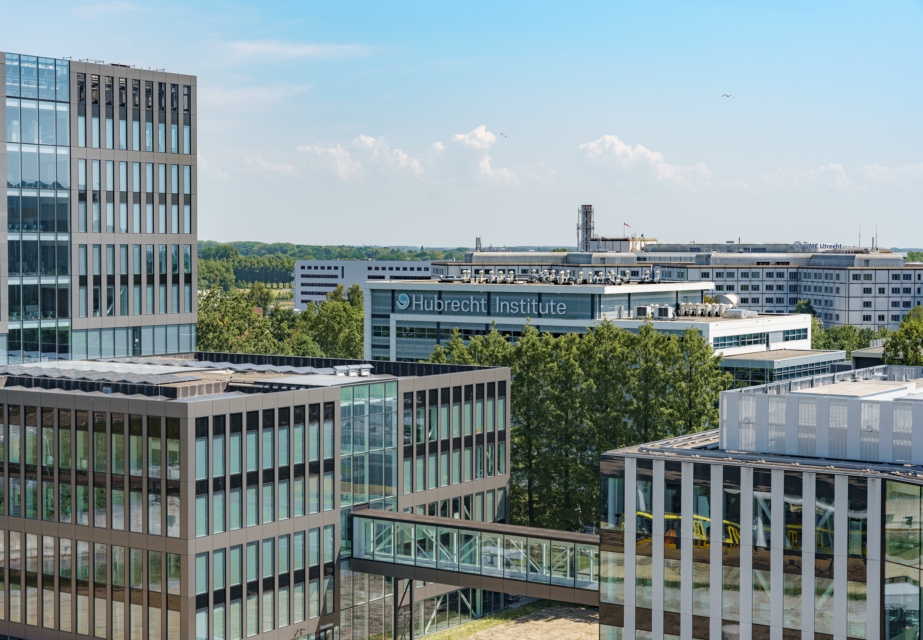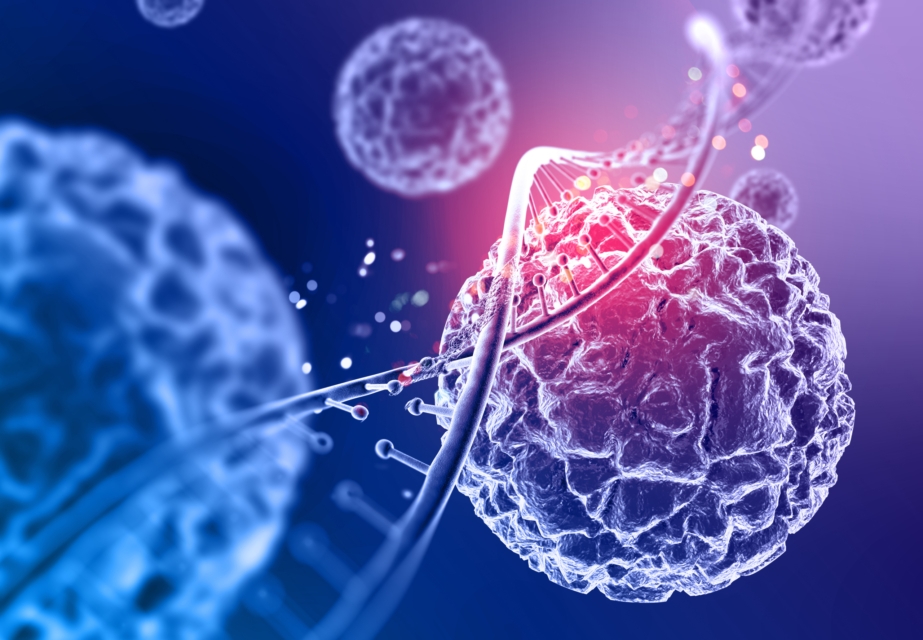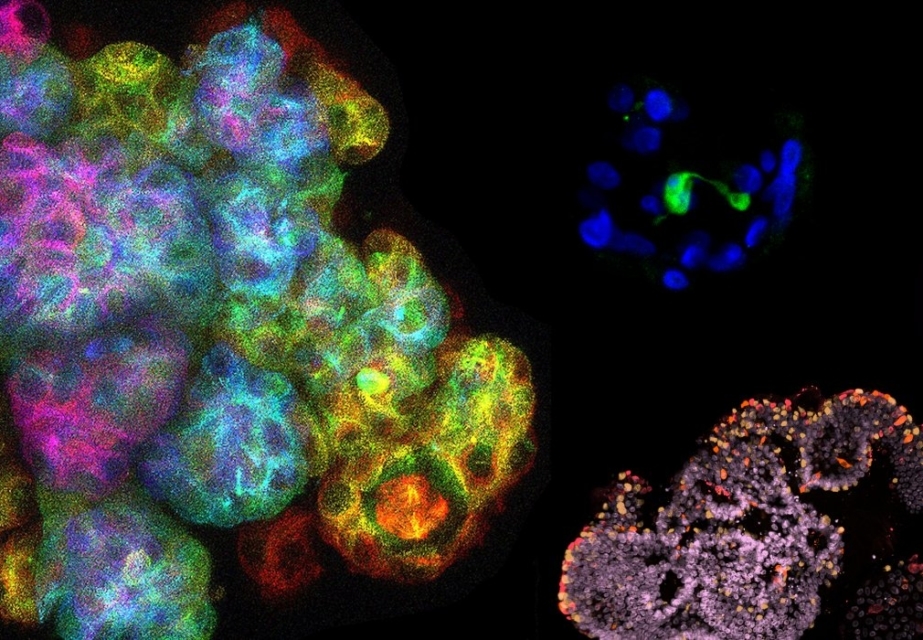Life Sciences & Health
The Life Sciences & Health theme at Utrecht Science Park covers a very large and diverse area. Work is being done on a healthy living environment, the search for new innovative treatment methods for cancer. Health also concerns the prevention and combating of infectious diseases, the application of stem cells to repair organs and the interaction between humans and animals. Health is about molecules and about people. About enormous populations and about the individual. About the elderly and about young children. Work is being done on health in laboratories, hospitals and lecture halls, but also in neighbourhoods and at schools. There is fundamental, clinical, translational and applied research. Interdisciplinary and in collaborations with public and private parties. Health at Utrecht Science Park is a dynamic interplay at a high level between large and small players. Between start-ups and established names.

Leading organisations
Utrecht University, UMC Utrecht, Genmab, Hubrecht Institute, Westerdijk Institute, Princess Máxima Center, Merus, RIVM, Regenerative Medicine Center Utrecht and Danone Nutricia Research are some leading players in the field of life sciences & health. Through collaboration between researchers, entrepreneurs, healthcare workers and students, an optimal ecosystem is created to find solutions for major societal challenges on this theme.
Research areas
Utrecht Science Park is an impressive Life Sciences & Health cluster. Within one and a half square kilometres we house one of the highest concentrations of Life Sciences knowledge and facilities in Europe. We have fundamental research, applied research, education, clinic and social partners within walking distance of each other. For example, groundbreaking research is conducted in the following areas: cancer, regenerative medicine, infections & immunity, organoids, planetary health and brains.

Cancer
Since 2008, cancer has been the number one cause of death in the Netherlands. In 2024, almost 130,000 people in the Netherlands will have been diagnosed with cancer. And that number continues to rise. The consequences of this are wide-ranging. First of all, of course, for the patients and their loved ones, but also for healthcare, such as the deployment of (increasingly scarce) staff and rising healthcare costs. Only through innovations in diagnostics and treatment we can improve the prospects of cancer patients. Innovations that result from groundbreaking research. Groundbreaking research requires the use of many different areas of expertise. Utrecht Science Park offers the ideal ecosystem for this. The basis for our work is formed by innovative research, talent and multidisciplinary collaboration.
In order to be able to carry out research and innovation in the field of cancer treatments even more efficiently, Utrecht University, UMC Utrecht, the Princess Máxima Center and the Hubrecht Institute have set up a collaboration platform, “Utrecht Cancer”. This also involves intensive collaboration with research & development companies at Utrecht Science Park, such as Genmab, Merus and Danone.

Regenerative medicine
Regenerative medicine aims to develop new treatments that repair, replace or restore cells, tissues and organ functions after damage from disease or injury. Regenerative medicine therefore studies and uses the body’s ability to heal itself. Research in regenerative medicine is important because it…
- contributes to the treatment of (chronic) diseases that can currently only be treated with medication.
- in the future it can be an alternative to heavy and expensive treatments such as dialysis.
- can help with organ recovery, for example after a heart attack, nerve damage, liver damage or bone fractures that do not heal by themselves.
- can help with healthy aging and thus reduce healthcare costs.
- can accelerate recovery and thus shorten hospital stays.
- in the future it may offer treatments for diseases for which there is currently no therapy.
- in the future it may offer an alternative to donor organs.

Organoids
In 2009, Hans Clevers , a stem cell biologist at Utrecht University, made a discovery that would forever transform healthcare. His lab at the Hubrecht Institute had grown what, under the microscope, looked like a real gut outside the body (made from mouse intestinal cells). It was the first in a series of organs-in-a-dish that would revolutionise personalised medicine in every corner of the world.
Today, the possibilities of these mini-organs are enormous: from finding the right treatment to otherwise lethal genetic diseases, numerous cancers and infectious diseases, to understanding furtive neurological disorders such as schizophrenia, bipolar disorder or autism without having to poke one’s brain. We also know deaths from organ donor shortages could soon be a thing of the past.

Planetary health
Planetary health is the health of humans in relation to the health of the earth. Planetary health is under pressure. The ecological footprint causes global warming, environmental pollution and loss of biodiversity, with all the consequences: think of excess mortality due to heat stress, malnutrition, migration, mental decline. The climate crisis is currently seen as the biggest health crisis. Researchers from Utrecht University, among others, are thinking about the future of agriculture, in order to create a food system that is more resistant to environmental and climate change: from developing a potato variety that is more resistant to flooding to reducing the use of chemicals, water and energy through precision agriculture, as well as influencing the food choices of consumers in order to accelerate the ‘protein transition’ to plant-based diets. Some researchers seek the solution in technical developments, others focus on restoring the ecological balance and still others focus on administrative challenges. Together, these different perspectives lead to a recipe for a healthy planet: a concept based on the premise that the well-being of people, other living organisms and the ecosystems in which they live are interdependent.